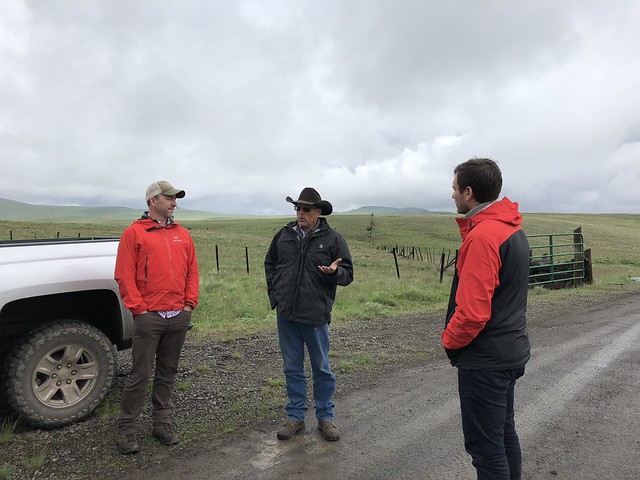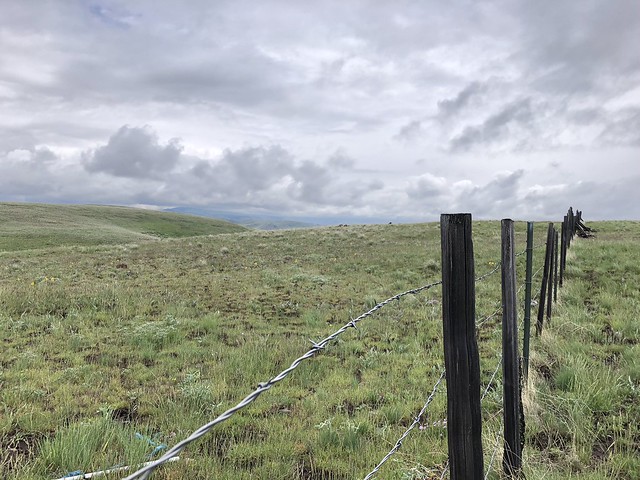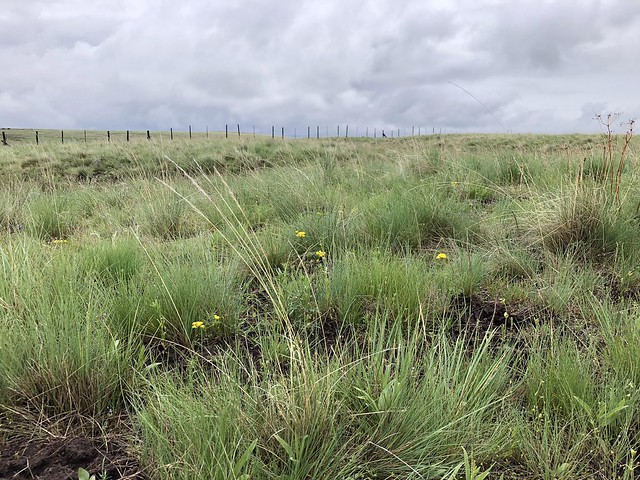
Oregon ranchers Dan and Suzy Probert grow cattle and healthy soil. And with the help of Farm Bill programs, they’re protecting the Lightning Creek Ranch from development as well as finding new revenue options like carbon trading markets.
In 2016, USDA’s Natural Resources Conservation Service (NRCS) purchased an easement on the 12,225-acre ranch. The terms of the conservation easement allow the Proberts to continue running cattle but also ensure that the ranch’s carbon-rich soil won’t be disturbed, keeping that carbon (soil organic matter) locked in the soil forever.
An effort funded by NRCS’ Conservation Innovation Grants program is helping the Proberts sell carbon credits for keeping their soil undisturbed, creating a new source of income for the family.
This NRCS grant to The Climate Trust, a non-profit based in Oregon, supported the establishment of a Working Lands Carbon Fund. The funding was used to develop the legal and financial framework of the fund, which became Climate Trust Capital’s Fund I.
This $5.5 million carbon offset investment fund provides upfront capital for the development of carbon credits. Fund I was launched in October 2016, supported by an investment from the David and Lucile Packard Foundation.
Fund I invests in forestry, grassland conservation, and livestock digester carbon projects in return for partial ownership of the resulting carbon credits.

In the case of Lightning Creek Ranch, capital from Fund I provided critical financing early in the project and contributed to the purchase of the easement. While the easement on the ranch protects the landscape’s ecological value and will support ranching livelihoods for generations, it also represents a significant investment in the 55,000 tons of carbon sequestered in the ranch’s healthy soils.
The Climate Trust anticipates that this investment in avoided grassland conversion will yield attractive returns once the carbon credits are sold. Some of the carbon credits generated by Fund I’s projects are destined for sale in California’s regulated greenhouse gas market (forestry and biodigesters). Others will be sold to buyers that choose voluntarily to purchase carbon credits, such as a company looking to meet its sustainability goals.
“The Climate Trust project exemplifies what we are attempting to do with our cohort of conservation finance CIG projects,” said Kari Cohen, Director of NRCS’ Conservation Innovations Team. “The Working Lands Carbon Fund has demonstrated that we can leverage our Federal funding at least five times over, and that we can also leverage other NRCS programs to put philanthropic and private sources of capital to work on agricultural and forest lands.”
With the initial investments completed, the Climate Trust intends to scale up to a much larger carbon investment fund that appeals to impact and institutional investors.
Models like the Working Lands Carbon Fund hold significant potential for investors interested in conservation impacts while providing a new source of income and capital for stewardship-minded landowners.
For the Proberts, the easement and the carbon payments are helping protect their ranch, and their way of life, for future generations.
Since 2004, USDA has invested more than $297 million for 732 projects, including 22 new projects that were announced today.


